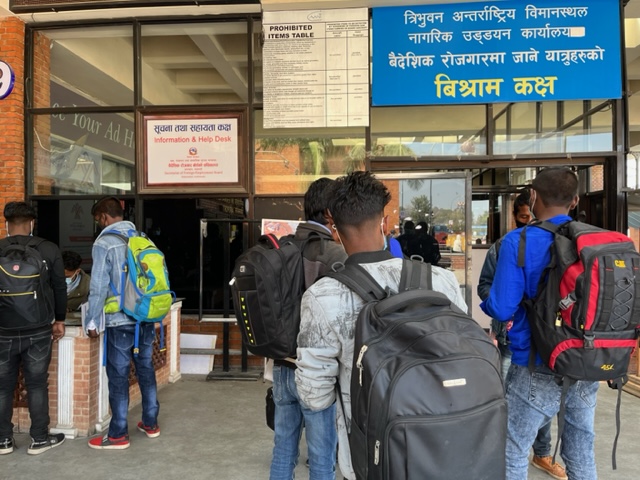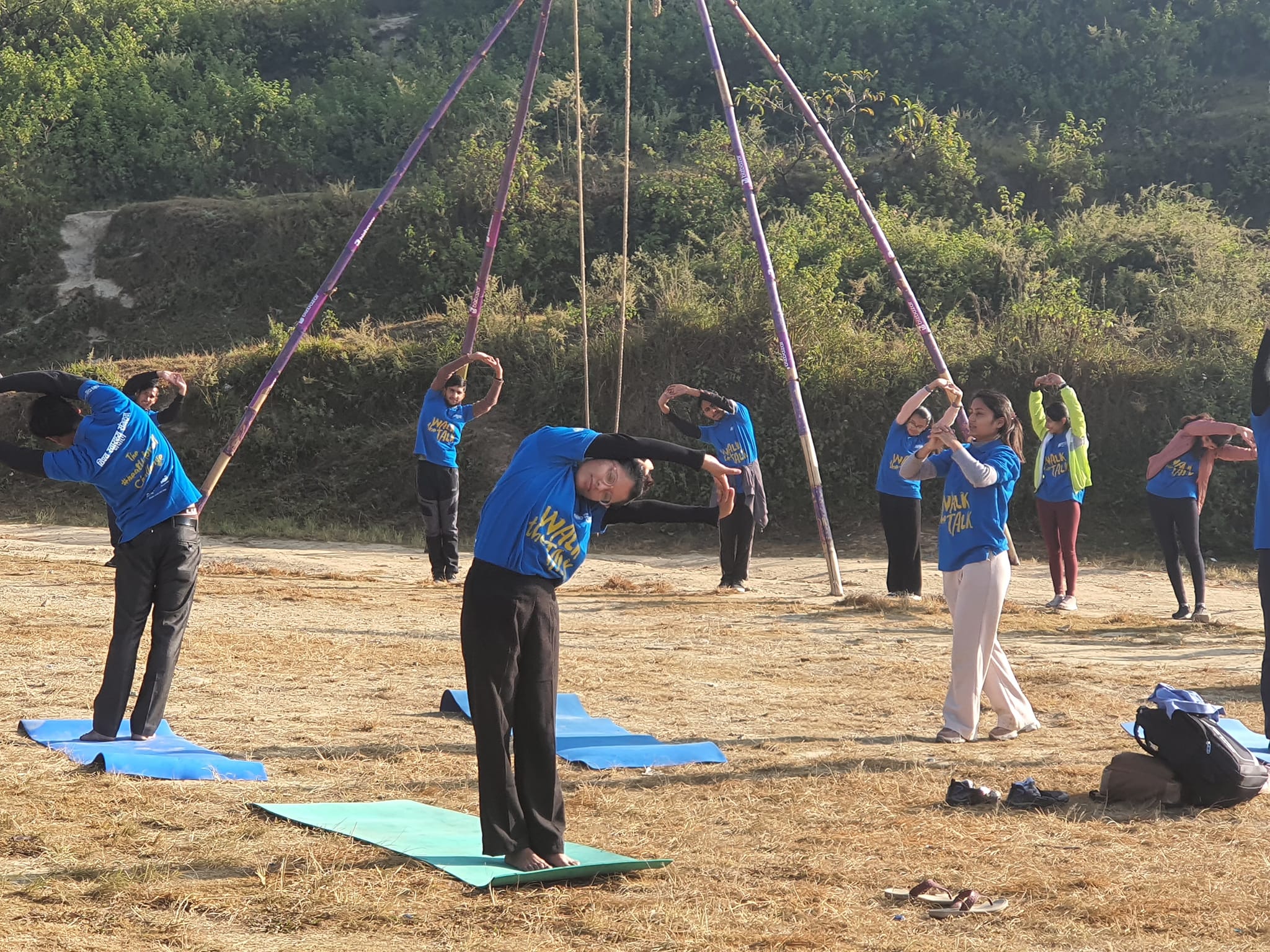Life & Health

If you live in an urban area and are overweight, you have reasons to worry.
If that is the case, you are more likely to suffer from diabetes, a chronic health condition that affects how your body turns food into energy. If untreated, diabetes can trigger heart disease, stroke, kidney failure and lead to permanent eye, skin and bone damage.
But if you get enough physical exercise, watch your diet – including the amount of sugar, salt and oil - and lead a healthy lifestyle, you need not worry much. Still, health experts advise undergoing periodic tests to ascertain the state of your health and your blood sugar level. Get tested, they stress, no matter what you do, no matter where you live.
Get tested, they say, even if you are a migrant worker who has just returned to Nepal from foreign employment overseas. Equally important, avoid stress or manage it because new research shows that more and more Nepali youth are beginning to suffer from the chronic disease.
Young patients
Shockingly, they include returnee migrant workers too. Research conducted by Dr Farmud Ansari and co-authors, published in 2021 in the Journal of Nobel Medical College, showed 13 (18.8 per cent) out of 69 migrant patients admitted at the college’s teaching hospital had diabetes.

The migrant workers aged between 26-35 had returned from Malaysia, Saudi Arabia, United Arab Emirates, Qatar and Kuwait, it said.
Records from Bir Hospital, where several returnee migrant workers are diagnosed with diabetes on a daily basis, paint a similar picture.
Dr Dipak Malla, a consultant endocrinologist at Bir Hospital, said: “Working and staying hungry for long hours, consumption of sugary food and drink, and stress must be the reasons why more and more returnee migrant workers are now diabetic.”
An unhealthy diet and difficult access to health services overseas could be the factors for their raised blood sugar levels, he added.
Dr Malla added: “The migrant workers do not come only with raised blood sugar but also with its complications such as kidney diseases, eye problems and difficulties in foot.”
Also Read: WHO urges early diabetes testing
Also Read: The challenge to move
What is diabetes?
According to Nepal Health Research Council, diabetes is a chronic metabolic disorder characterised by raised blood sugar when the pancreas does not produce sufficient insulin or the body cannot effectively use its insulin. Diabetes can damage the heart, blood vessels, eyes, kidneys and nerves.
Obesity, lack of sleep, stress, are some of the major causes for diabetes, say experts.
Weight loss, excessive thirst and hunger, slow healing of wounds, frequent urination etc are some of the symptoms of diabetes.
A research paper published in the Journal of Public Health in 2021 authored by Dr Nirmal Aryal and co-authors revealed that from among the 44 Nepali returnee migrant workers treated for chronic kidney disease, 70.5 per cent were involved in manual or semi-manual work in Gulf countries and Malaysia.
The study suggested exposure to heat, long working hours, dehydration, sleep deprivation and obesity as major risk factors.
Pregnancy and diabetes
Diabetes can develop during pregnancy in women who don't have diabetes earlier. Medical practitioners suggest women conduct regular blood tests.
“Women whose diabetes was reported during her pregnancy are likely to have raised blood sugar after two years of childbirth,” Dr Malla said.
Blood sugar of a pregnant woman should be tested in the 24th or the 26th week of pregnancy. “If you are planning for a baby then you must undergo tests for blood sugar and thyroid before conceiving to have a healthy pregnancy and baby,” he said.
Ways to prevent and delay diabetes
The Nepal Burden of Disease 2017 study shows a prevalence of 8.5 per cent of diabetes in the country.
Dr Phanindra Prasad Baral, non-communicable disease section chief at Epidemiology and Disease Control Division, said: “Those with family history of diabetes, high blood pressure, obesity and sedentary lifestyle are prone to develop diabetes.”
Simple lifestyle changes will be effective in preventing or delaying diabetes.
Dr Malla said: “Maintaining a healthy body weight, eating a healthy diet and avoiding tobacco will prevent and delay diabetes.”
Experts say that sleeping six to eight hours is necessary to keep blood sugar balanced.
They advise people to undergo blood tests to check whether they have raised blood sugar. “Those with raised blood sugar should start medication immediately,” said Dr Baral.
Timely treatment
If one is in a foreign country and has developed diabetes, it is important to start taking medicines. “One should not wait to come back to Nepal for treatment,” said Dr Malla.
Experts advise those with diabetes to check their feet regularly. They say that if wounds don’t heal in time, there might be a problem.
Dr Malla suggested: “Those with diabetes should test haemoglobin A1C – HbA1c test – a blood test that measures one's average blood sugar levels over the past three months to find the correct report of their blood sugar.”

Physical exercise for about 45 minutes to an hour five days a week will be helpful. People should consume green leafy vegetables, citrus fruits and pulses and not live a stressful life.
Dr Rajesh Sambhajirao Pandav, the WHO representative to Nepal, wrote on his Facebook: "Good nutrition, an adequate, well-balanced diet combined with regular physical activity is a cornerstone of good health.
In a video message, Pandav said: “Ramping up dedicated public health measures is key to containing the risks for diabetes which have been further exacerbated by rapid urbanisation and changing lifestyles of communities.”

_11zon1681280198.jpg)




